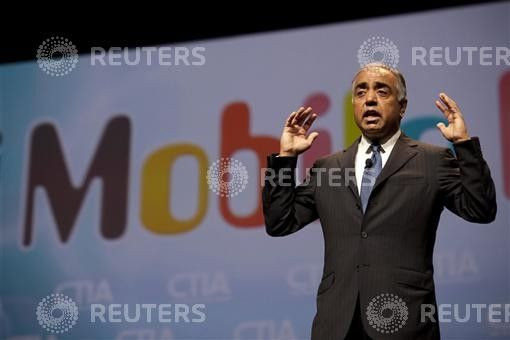FCC Nixes LightSquared Wireless Network Plan

The Federal Communications Commission halted LightSquared's request to build a national wireless network Tuesday, dealing a major blow to the ambitious plan and opening the door to a protracted legal fight.
LightSquared, a closely held firm based in Reston, Va., had invested $4 billion in airwaves in order to offer wireless Internet service at higher speeds to as many as 260 million customers. The total project was expected to cost about $14 billion.
The company received conditional approval from the FCC in early 2011. But federal agencies, most notably the National Telecommunications and Information Administration, found LightSquared's spectrum signals interfered with the navigation systems of planes and boats, known as Global Positioning System (GPS). The FCC eventually agreed.
NTIA, the federal agency that coordinates spectrum uses for the military and other federal government entities, has now concluded that there is no practical way to mitigate potential interference at this time, the FCC said in a statement. Consequently, the Commission will not lift the prohibition on LightSquared.
This proceeding has revealed challenges to maximizing the opportunities of mobile broadband for our economy, the FCC said. In particular, it has revealed challenges to removing regulatory barriers on spectrum that restrict use of that spectrum for mobile broadband.
The FCC ruling is subject to public comment. Furthermore, LightSquared has threatened legal action if the deal didn't receive approval.
There is no legal question that an America where both the GPS industry and LightSquared's network can co-exist is a stronger one for any administration that believes in competitive markets and job growth, LightSquared said in a statement.
Given the unanimous view (of regulators), I think that would be a very difficult challenge, Gimme Credit analyst Dave Novosel said in an interview. The odds of success there are not good.
Many analysts believe LightSquared doesn't have the money to engage in a prolonged legal fight. LightSqaured CEO Sanjiv Ahuja told Bloomberg in December the company would be adequately funded during the government's review period, although it isn't clear whether he anticipated a legal battle.
LightSquared couldn't immediately be reached for comment.
CreditSights analyst Ping Zhao said in an interview she wasn't sure what kind of legal challenge LightSquared would have. But she said the FCC shouldn't have granted the conditional approval in the first place, given that there were interference issues even before the approval was granted.
It would have saved a lot of time and money for LightSquared (if approval wasn't granted), Zhao said.
The FCC decision is also a major setback for billionaire Philip Falcone and his hedge fund, Harbinger Capital. The fund invested about $3 billion in LightSquared, but was required to cut the value of the company by more than half as investors began losing significant money on the deal.
More than 30 wholesale customers had planned on using LightSquared's network once the technology had been implemented. Sprint Nextel was to roll out the network during an 11-year period in exchange for $9 billion in payments and $4.5 billion in service credits.
Sprint recently distanced itself from LightSquared's plans.
We'll cross that bridge when we come to it, Sprint CEO Dan Hesse told Bloomberg last week, anticipating the deal would fall through.
We are not spending any more money today on putting new equipment in our network to support LightSquared, Hesse continued.
Sprint signed an agreement in late 2011 with joint-venture partner Clearwire to help expand its wireless network into 2016. Novosel said the deal makes Clearwire more valuable, since more companies may now have to rely on the company in order to obtain spectrum.
Shares of Clearwire rose 3.06 percent to $2.36 at midday trading.
Wireless spectrum, which is controlled by the FCC, has been in increasingly short supply due to the growth of data heavy smarthphones, and wireless carriers have been looking to snag that spectrum in a variety of ways. AT&T attempted to merge with T-Mobile USA in order to obtain T-Mobile's spectrum (the merger failed amid government opposition). Verizon Wireless announced in December it intended to purchase $3.6 billion worth of spectrum from SpectrumCo LLC -- a joint venutre between Comcast, Time Warner Cable and Brighthouse.
The ruling may not make much of a difference in the long run for wireless carriers, Zhao believes. She said while LightSquared signed up a lot of customers such as Sprint, those customers didn't necessarily make firm committments to work with LightSquared.
But Novosel believes the FCC's decision gives those looking for spectrum one less option.
This ruling puts more of a premium on available spectrum, Novosel said. And that's good for those who have it.
This article has been updated to provide analyst comments and an updated Clearwire share price.
CORRECTION: An earlier version of this article misspelled analyst Dave Novosel's last name. The story has been updated with the correct spelling.
© Copyright IBTimes 2024. All rights reserved.





















